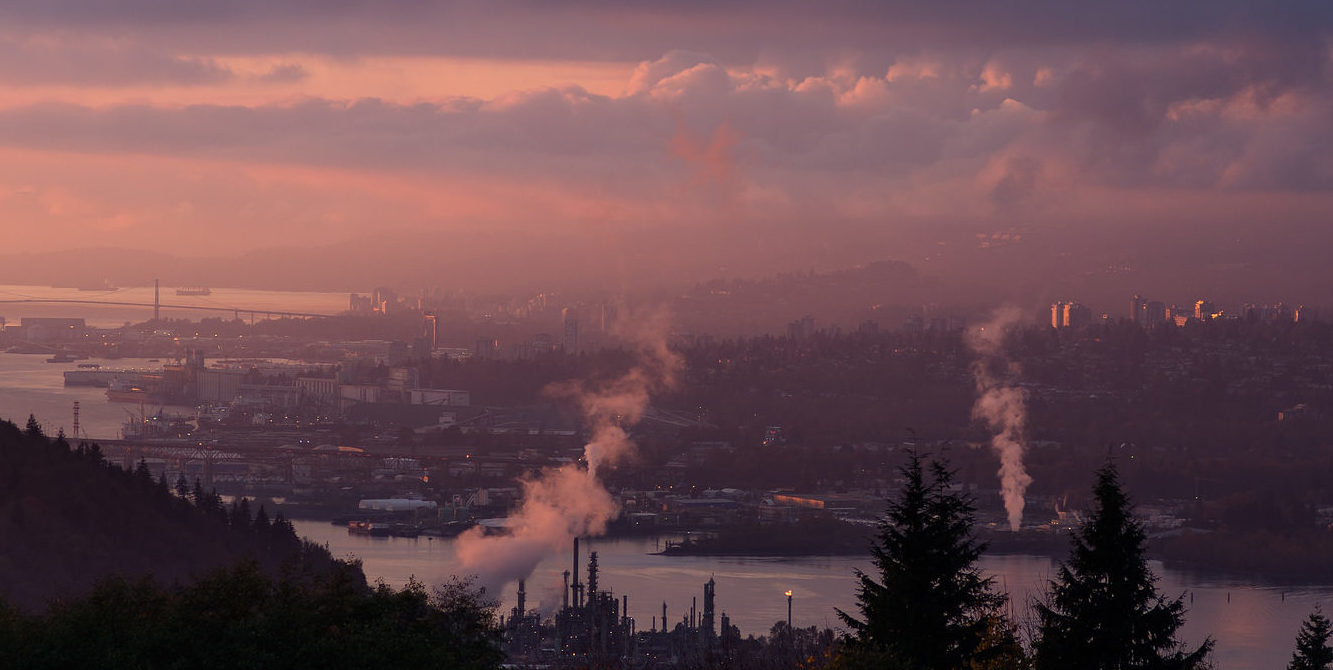“The wild west of Canadian political cash.” That’s what the New York Times called British Columbia in a January 2017 investigation into the province’s extremely permissive rules governing campaign donations. Now, a new report by a trio of researchers at the Canadian Centre for Policy Alternatives (CCPA) shines a light on fossil fuel political spending in BC.
Unusual for any modern democracy, the province actually has no limit on contributions to political parties. There are no caps on checks from individuals, corporations, or even foreign entities doing business there or working directly with the government. (By contrast, charitable organizations, including NGOs, are barred from making political donations.) In fact, the premier is actually awarded a special stipend from the party—over and above the government salary that comes with the office—that is funded directly by political contributions.
The dirty energy development schemes are not divorced from politics.
As the CCPA report shows, lightly regulated political giving is an issue that seems pronounced with the fossil fuel industry—the coal, oil, and gas companies that have designs on converting BC into a global superpower of carbon pollution-based exports. The province is already a major producer of coal (mostly high-grade coal for steelmaking) and fracked gas. And in recent years the fossil fuel industry has proposed two new major oil pipelines to carry tar sands, four new or expanded coal terminals, at least six new gas pipelines, and no fewer than twenty liquefied natural gas (LNG) facilities on the coast, some of which would be the biggest in the world.
The dirty energy development schemes are not divorced from politics. Examining giving to the province’s two leading parties, the right-leaning Liberal Party and the left-leaning NDP, the report finds that “48 fossil fuel companies and industry groups donated $5.2 million over the eight-year period between 2008 and 2015. Of this total, 92% went to the BC Liberal Party.” (Nota bene for American readers: the BC Liberal Party is the province’s governing center-right party and unaffiliated with the national Liberal Party of Prime Minister Trudeau.) The vast majority of that money—about three-quarters of it—came from just ten contributors. And of those ten contributors, only two are actually headquartered in the province: half are based in Calgary (sometimes thought of as the Houston of Canada for its central role in the oil industry), while three more are either based in the US or are subsidiaries of US companies.
The report also provides the first comprehensive look at fossil fuel industry lobbying in the province, identifying 19,571 contacts between government officials and lobbyists from just ten firms between April 2010 and October 2016—that’s an average of 14 contacts per day. By contrast, the entire array of environmental NGOs in the province had just 1,324 lobbying contacts over the same period.
Still, as infused with dirty energy money as BC politics may appear to be, it may actually be a less severe problem than it is in the US. As Sightline has documented in previous work on democracy issues, Canadian elections are generally less influenced by money than they are in the United States. That seems to be true even when comparing British Columbia and the Northwest states of Oregon and Washington, which are roughly similarly sized. Examining political spending for just two years, 2013 and 2014, Sightline documented fossil fuel industry political spending of more than $3 million in Washington and $2 million in Oregon. A related analysis by Oil Check Northwest tallied coal, oil, and gas industry political spending of nearly $8 million in Oregon and more than $12 million in Washington over the six-year period from 2009 to 2014. (To be clear, CCPA’s accounting in British Columbia, which focuses on giving to parties, is not directly comparable to Sightline’s or Oil Check’s methodologies, which count lobbying expenditures and contributions to political action committees, as well direct contributions to candidates and parties.)
Although political spending looks to be higher in the Northwest states, the fossil fuel industry’s campaign cash does appear to be having more success in British Columbia. The executive branches in Oregon and Washington have largely cast a skeptical eye on dirty energy proposals, but the government of British Columbia is actively cheerleading LNG development and coal exports, while offering only modulated concerns over new oil shipment projects. In that context, the CCPA report is a timely warning that the success of the Thin Green Line—the Northwest’s regionwide resistance to carbon pollution-based exports—may be available for purchase from British Columbia’s political leaders.
[list_signup_button button_text=”Like what you|apos;re reading? Get our latest fossil fuel research right to your inbox.” form_title=”Fighting Fossil Fuels” selected_lists='{“Fighting Fossil Fuels”:”Fighting Fossil Fuels”}’ align=”center”]


Comments are closed.